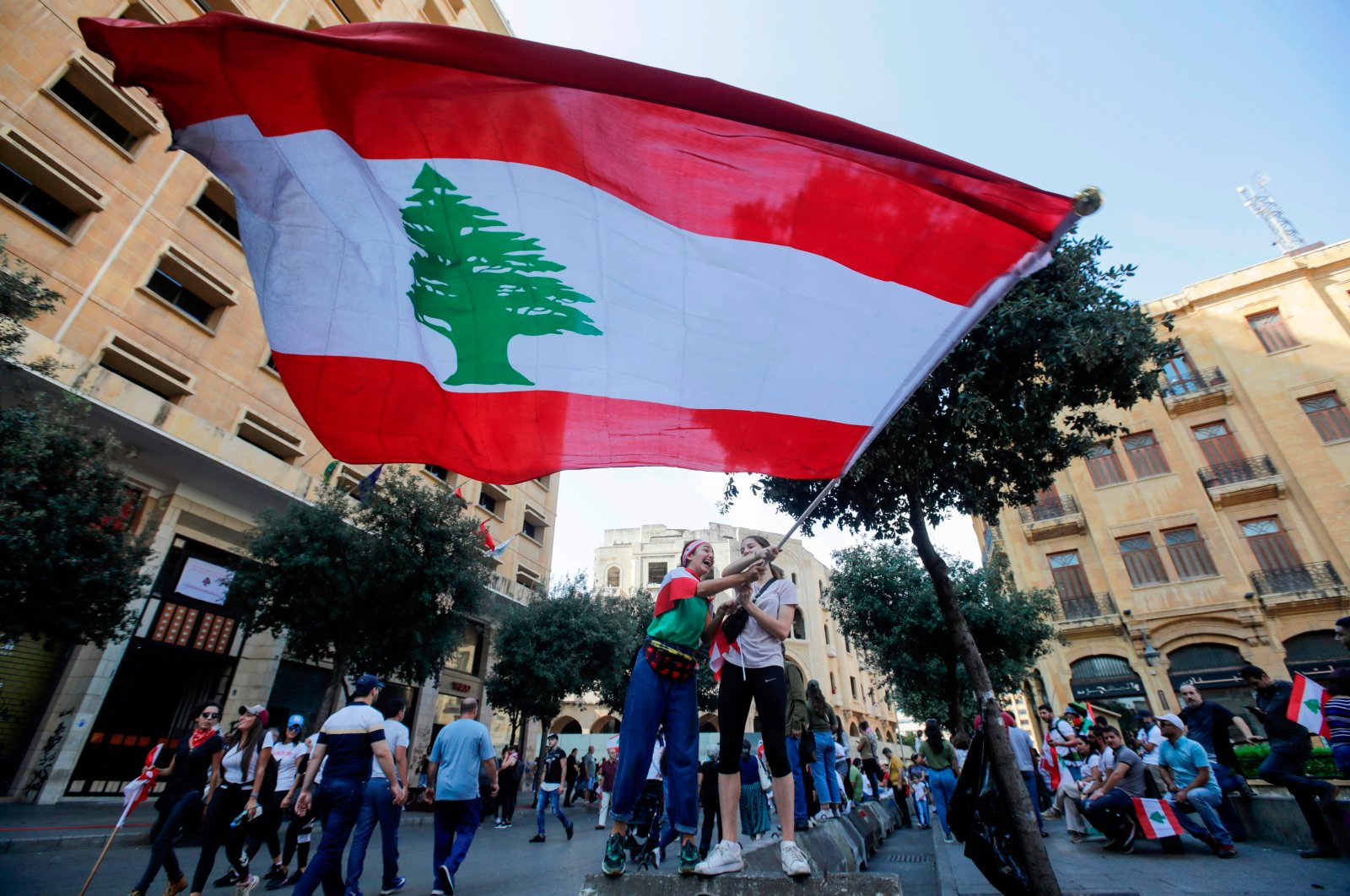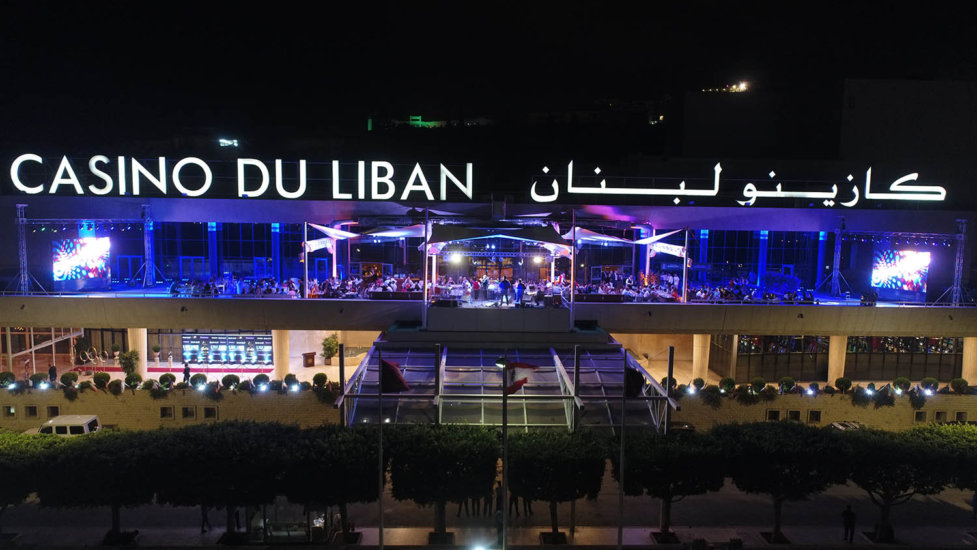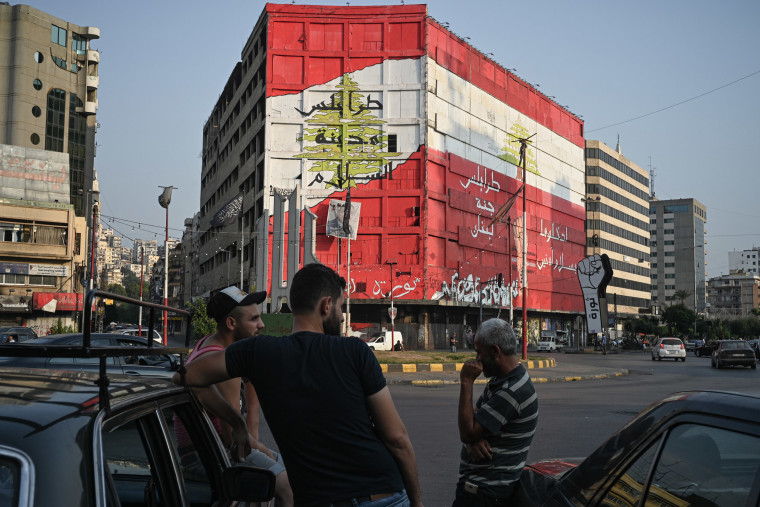by english.aawsat.com — Lebanon’s Prime Minister Hassan Diab said on Saturday dialogue was needed over the country’s stance on regional conflicts, after meeting with Maronite Patriarch Beshara al-Rai who has urged Lebanon to remain neutral to help it out of its crisis. The country is in the grip of a financial meltdown, raising concerns for […]
![Lebanese nurses at the Rafik Hariri public hospital in Lebanon's capital Beirut, on 12 May, 2020 [JOSEPH EID/AFP via Getty Images]](https://i0.wp.com/www.middleeastmonitor.com/wp-content/uploads/2020/07/GettyImages-1212812981.jpg?resize=1200%2C800&quality=85&strip=all&zoom=1&ssl=1)
by middleeastmonitor.com — Zawqan Abdelkhalek, a nurse at the American University of Beirut’s (AUB) medical centre since 2012, was laid off on Friday along with hundreds of colleagues as even hospitals buckle under the weight of Lebanon’s economic collapse. “I have a baby daughter, I need to get her food and water and pay for her vaccines,” the 29-year-old said. A currency crash means his pension in Lebanese pounds is now worth just around $500, he said. He blamed the ruling elite for daily power cuts, skyrocketing prices and pushing the country to the brink. “You can’t do anything anymore … who’s hiring today? This is where they got us, and now they tell you ‘go plant crops and buy candles, you’ll be fine’, while we just move backwards” he said.
The AUB, one of the country’s oldest universities and a regional medical hub, did not respond to requests for comment. Local media and employees said the institution laid off more than 500 workers, mainly in administrative and nursing departments. Its president, Fadlo Khuri, had said there would be staff cuts as the financial meltdown and the coronavirus pandemic hit revenues. He told Reuters in May the private institution faced its biggest threat since its foundation in 1866. While Lebanon produces little hard economic data, businesses have shut at a rapid rate. At least 220,000 jobs in the private sector were shed between October and February, a survey by research firm InfoPro showed, with the figures only expected to get worse. Mahmoud Edelbe, a maintenance worker at AUB who also lost his job on Friday, said his monthly income was only around $100 since the Lebanese pound, known as the lira, lost nearly 80% of its value on the parallel market. “Are we the burden on the university?” he said near dozens of ex-employees crowding the hospital entrance. “We get the short end of the stick, we who have nobody to back us or help us.”
By Abbie Cheeseman — nbcnews — BEIRUT — Mohammad Kekhia stares into his nearly empty fridge. His 14-year-old son, Hassan, stands beside him, peering in hopefully. To Hassan’s disappointment, his father closes the door without retrieving any food. There is not enough. Not if they want to have anything left for tomorrow. “We are eating once every two days if we are lucky,” Kekhia says. Lebanon is grappling with its most severe economic crisis in modern history. The lira has lost over 80 percent of its value since October. Unemployment is soaring. Prices are skyrocketing. Hunger is spreading across this tiny Mediterranean country, known worldwide for its cuisine.
The collapse of the Lebanese currency has had knock-on effects in neighboring Syria, which has long used Lebanon as a route around sanctions. And the crisis has left Lebanon, a strategic country regionally, open to intervention from other countries as a bailout from the International Monetary Fund grows more unlikely. Relations have fractured further with the U.S, which is a backer of the army and some parties in Lebanon, as well as the largest donor to the IMF. Hezbollah — an Iranian proxy officially designated a terrorist organization by the U.S., and a political group with unrivaled influence in government — has claimed Lebanon’s crippling dollar shortage results from a U.S conspiracy. Hezbollah leader Hassan Nasrallah is advocating for Lebanon to “look east” rather than west to get out its economic quagmire, setting its sights on investment from China. Inside Lebanon, the issues involve not East or West but the daily struggle to get by. In the northern city of Tripoli, Kekhia had been living a basic life with his wife and their three children. They have lived for the past seven years in a single room with a tin roof. But now they’re battling hunger and deep poverty. “Yesterday, our neighbors gave us a bag of bread. … We can’t even manage that ourselves,” said Kekhia, who used to work in construction. “Every two days, I go out and try to gather some olives or some labneh [thick yoghurt] so that the children can eat a little.” Three months behind on rent, out of gas, stealing electricity from a neighbor to power their one lightbulb and the fridge, he and his family are desperate. They can no longer afford Hassan’s epilepsy medication.
by reuters — Hezbollah should take the blame for Lebanon’s economic collapse, the country’s top Christian cleric said in an interview with Vatican Radio this week, in his most direct criticism yet of the Iran-backed Shiite movement. Maronite Patriarch Bechara Rai’s comments marked his strongest intervention in Lebanon’s crisis, which is seen as the worst […]

by thenational.ae — Sunniva Rose — Nine months after nationwide anti-government protests shook Lebanon, a few hundred protesters rallied around several anti-establishment political parties in the capital Beirut on Friday afternoon to revive their “revolution” as the country’s economic crisis worsens. “We must continue our revolution and change all this system,” said protester Mohaj Chaaban, who attended a rally in Beirut’s Martyr’s Square. “It’s 2020 in Lebanon and we don’t have electricity, we don’t have access to good schools, we don’t have a medical system, we have nothing,” Mr Chaaban told The National, referring to the country’s crumbling infrastructure that has worsened with the current economic crisis. A dollar crunch that caused the local currency to devaluate last summer pushed hundreds of thousands of Lebanese on to the streets on October 17 in what many supporters of the anti-government movement have dubbed the ‘October revolution’. But protests petered out after Hassan Diab’s government was formed in January with the promise that it would address the country’s failing economy. However, little to no reforms were implemented and the government has hit a brick wall in negotiations for a bailout with the IMF.
Meanwhile, half the Lebanese have been pushed into poverty, the local currency has lost over 80 per cent of its value on the black market, and fuel shortages have disturbed everyday life with electricity cuts for about 20 hours a day and disturbances in mobile network coverage. Both former Labour and Telecom Minister Charbel Nahas and former commander of the Lebanese army’s rangers regiment, retired brigadier general Chamel Roukoz, organised the protest in downtown Beirut, in an attempt to encourage the Lebanese to take to the streets once again. “Our project is easy,” said Mr Nahas in a speech, saying his party wanted a “peaceful transfer of power to a government with legislative powers for a period of 18 months with two tasks: (…) managing the crisis fairly and (…) establishing the legitimacy of the only real possible state in our country, which is the civil state.” Both Mr Nahas’ party, Citizens in a State, and Mr Roukoz, who was accompanied by a delegation of retired soldier, advocate for the end of Lebanon’s sectarian power-sharing system and for the transition to a “civil state” in which government jobs would be based on competence uniquely and not on sectarian affiliations.
by arabnews.com — CAIRO: Lebanon’s leading Christian cleric has ramped up his condemnation of Hezbollah saying it has always sidelined the Lebanese state at times of war. The head of the Lebanese Maronite Christian Church Bechara Rai told Vatican News that the Iran-backed militant group has taken part in wars in countries such as Syria, […]
by Naharnet — Public Works Minister Michel Najjar announced on Wednesday an increase in public transportation fees as Lebanon’s economic crisis drags on without any near government solutions. Najjar held a joint press conference with Land Transport Union head Bassam Tleis and made the announcement “after a thorough scientific study taking into consideration the interest […]

Reuters — Writing by Ghaida Ghantous — Lebanon wants to negotiate fuel imports with Kuwait to help Beirut cope with an economic and financial crisis, Lebanon’s internal security chief said in remarks published on Tuesday. Abbas Ibrahim told Kuwaiti newspaper Al Rai he had discussed the matter with Kuwaiti officials during a visit to the oil-exporting Gulf Arab state this week along with other “shared ideas” that could help alleviate Lebanon’s crisis. “We want to purchase 100% of our requirements from Kuwait without going through agents or companies looking to make a profit … this is a purely commercial matter and I hope there will be no obstacles to it,” Al Rai quoted Ibrahim as saying. He said the request would be raised to Kuwait’s ruler.

By Joyce David — Communalnews.com —The Lebanese Ministry of Health announced that there were 166 new cases of COVID-19, a single-day high after the outbreak in February. According to National News Agency (NNA) statistics, so far, a total of 2,334 cases have been diagnosed and 36 died. The epidemic in Lebanon seemed to stabilize in recent weeks, but it began to heat up again on the 10th, and the number of people infected with the epidemic broke through 300 in 3 days. The Lebanese Red Cross tweeted that they had sent 131 confirmed employees of a cleaning company to the isolation center. The Lebanese Health Minister, Hamad Hassan, said that the 131 people were included in the 166 confirmed cases announced, and this data represents the “peak” of the epidemic. He also told the local media that it is not impossible for the epidemic to wreak havoc again, but the probability is “very small.” It seems that he wants to downplay the seriousness of the case.
Lebanon gradually loosened the lockdown measures at the end of April. It was locked down for another four days in May due to the return of the epidemic. In early July, the airport was restarted and closed for more than three months, allowing passengers to enter the country by plane. Lebanon’s economy has been crumbling, and this year has witnessed the impact of the epidemic. Not only has the exchange rate reached a record low, but nearly half of the population has fallen into poverty. Dr. Tedros: Many Nations Headed in Wrong Direction

Ed Silverstein — casino.org — The government may sell its partial share of the gaming property, located about 14 miles north of Beirut, to raise money, according to a recent report from Middle East Eye. A leading gaming historian at UNLV, David Schwartz, concurred that Casino du Liban could be sold given the current dire economic conditions. I don’t see why it would be impossible,” Schwartz told Casino.org about a possible transaction involving Lebanon’s casino. “Everything is for sale at the right price.” He added that if a global casino operator took over the casino, “potentially” it could lead to more tourism in the once thriving nation. “It would depend on how much capital they were willing to invest in infrastructure and marketing,” Schwartz added.
When gross gaming revenue (GGR) was higher, the Lebanese government earned significant revenue from the gaming property. In total, 50 percent of all casino revenue goes to the Lebanese government, the report said. Some 80 percent of the venue’s revenue comes from 15 percent of its customers. That 15 percent is largely made up of tourists and players from foreign nations, Middle East Eye reported.
Lebanon Once Was “Monte Carlo of Middle East”




